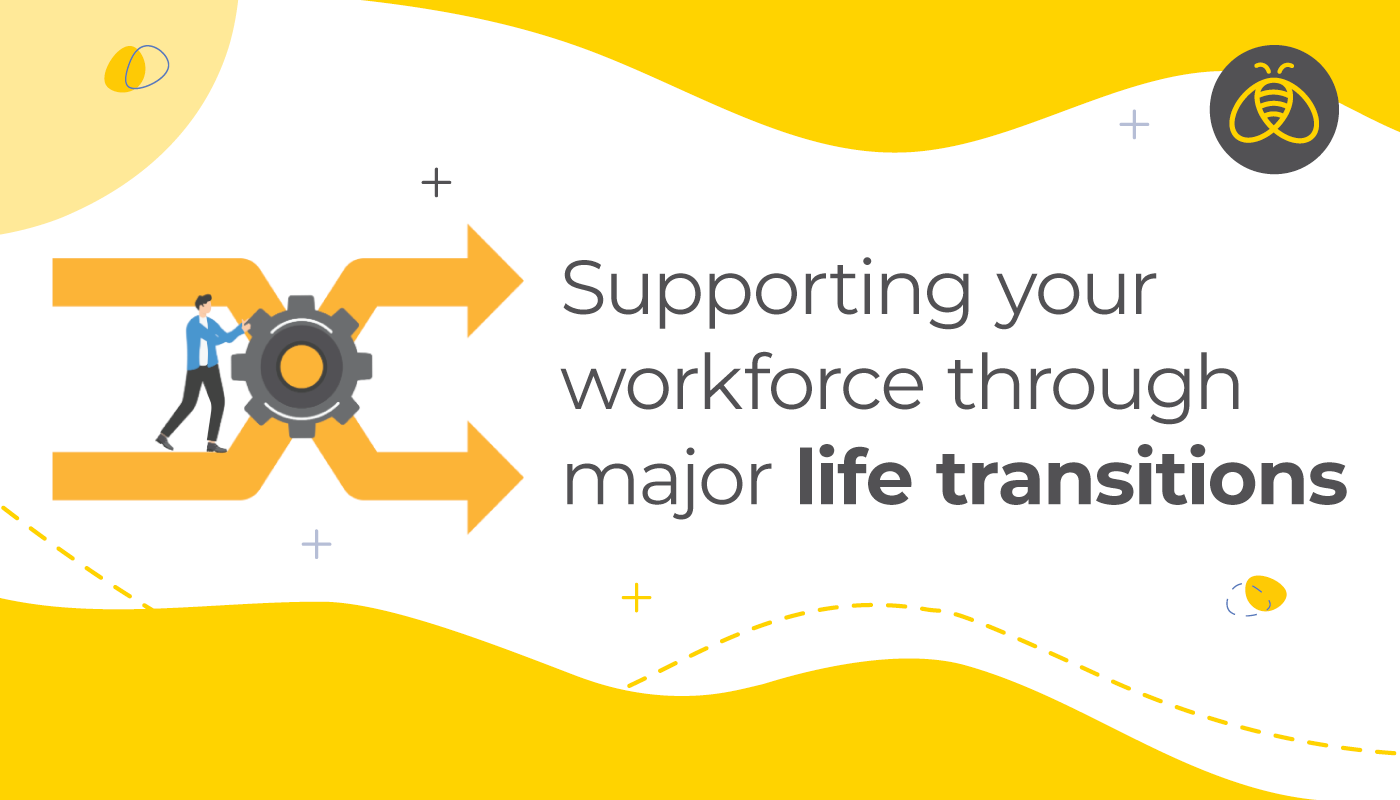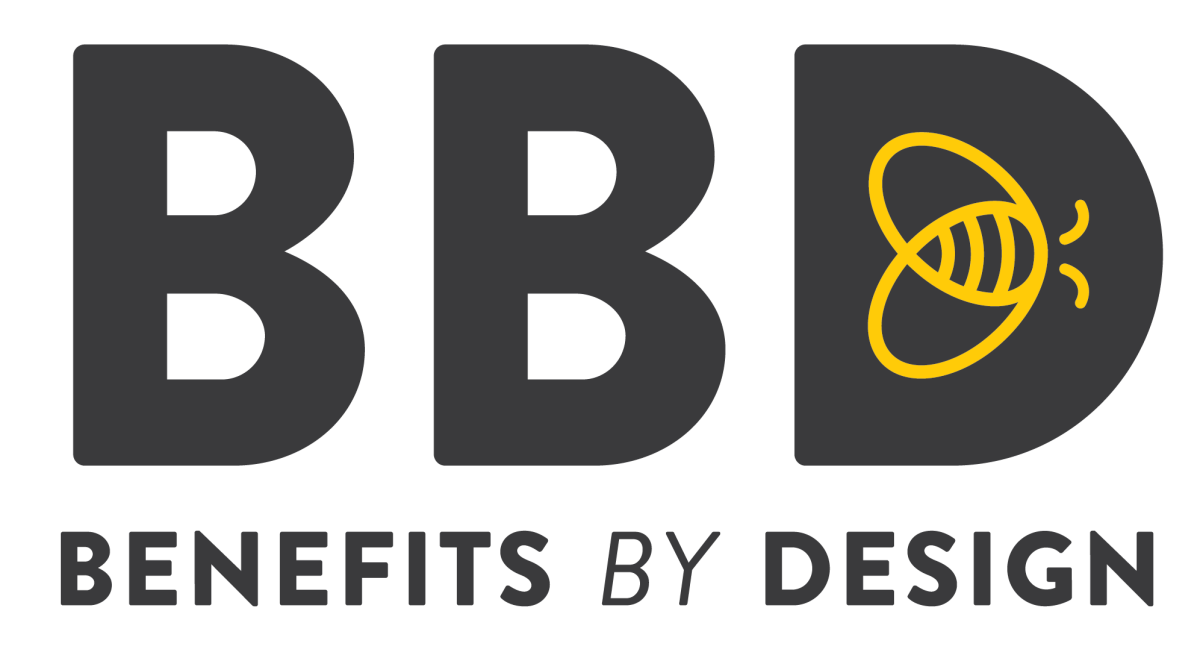Supporting your workforce through major life transitions
By: Benefits by Design | Tuesday October 28, 2025
Updated : Monday October 27, 2025
Life transitions affect employees in different ways. From moving homes to welcoming a child or caring for aging parents, these life changes significantly impact how people perform at work.
Supporting your workforce through major life transitions is crucial for fostering loyalty, mitigating stress, and sustaining productivity. Employees face new challenges when they go through major life changes, and these experiences directly affect performance. Companies that provide genuine support during these times create trust, improve morale, and strengthen long-term commitment.
The link between life transitions and employee well-being
When employees face change, stress levels often rise. Relocation, parenthood, and health issues demand both emotional and physical energy. Companies that support employee well-being help staff manage these challenges and build trust.
Workplace culture thrives when companies acknowledge the strain of life transitions rather than ignoring them. Providing wellness programs, counselling services, and flexible arrangements helps employees recover balance. Even simple steps, such as quiet rooms or wellness stipends, remind employees that their needs are recognized and valued.
Flexible work options offer relief
Flexibility is a powerful tool during major life changes. Remote work, adjusted hours, or temporary part-time roles can ease the burden on employees. These options show understanding and provide breathing space when personal responsibilities increase.
A parent returning from leave may benefit from a gradual transition back to full time work, while an employee moving homes might need remote days to coordinate logistics. These small adjustments boost morale and loyalty, and supporting your workforce with flexibility often leads employees to exceed expectations once stability returns.

How professionals make things easier for employees on the move
A long-distance move is one of the most stressful experiences a person can go through. Here, Professionals make things easier by handling logistics that overwhelm families. The benefits of hiring a professional long-distance moving company go beyond transport. They reduce disruption, allow employees to focus on work, and give peace of mind that possessions are safe.
When companies offer relocation assistance, it reduces the stress of uprooting. Packing, transport, and setup are handled by experts so that employees can concentrate on adjusting to their new role and environment. This investment signals that the employer sees relocation as a shared challenge, not a personal burden.
Emotional support builds trust
Life transitions are not always about logistics. Emotional support is equally important. Offering access to counseling, employee assistance programs, or peer groups helps staff manage stress.
Leaders who show empathy build trust. A manager who listens actively and responds with compassion creates psychological safety. This support extends beyond employees; it touches families who feel the ripple effect of company culture. A trusted employer becomes more than a paycheck — it becomes a support system.
Sleep challenges affect families and work
Life changes often disrupt sleep. New parents deal with restless nights, and children’s irregular sleep schedules affect routines. Adults going through stress or relocation also struggle with rest. Employers can address this by offering workshops on babies’ and children’s sleep alongside adult sleep education.
Lack of rest decreases focus, creativity, and overall health. Companies that address sleep directly show awareness of real-life struggles. Sleep education programs, quiet rooms, or even flexible schedules for new parents can make a meaningful difference. By helping families restore healthy rest, employers indirectly improve workplace performance.

Insurance coverage for relocating employees
Moving employees across regions or countries introduces risks. Offering insurance coverage for relocating employees ensures protection for both personal belongings and health needs.
Coverage reduces stress during moves, protects against financial loss, and reassures employees that their company invests in their security during transitions. A policy that covers damaged items, temporary housing, and healthcare provides peace of mind. Employees are more likely to accept relocations when they know their employer will safeguard them through the process.
Preparing leaders to guide staff
Managers play a central role in easing life transitions. Training leaders to recognize signs of stress and provide practical solutions strengthens trust. A manager who knows how to balance empathy with clear expectations supports both individual and team performance.
Leadership training should include communication strategies, stress recognition, and conflict management. These skills prepare managers to step in at the right moment. An employee who feels guided instead of pressured during major life transition builds loyalty and stays engaged, even through personal challenges.
Adjusting to the needs of an aging workforce
As the aging workforce grows, these life transitions include retirement planning, caregiving, or adapting to health changes. Companies that offer phased retirement, ergonomic office setups, or resources for elder care reduce stress for older employees.
Supporting experienced staff during these years is not only respectful but also practical. Older employees hold valuable knowledge and mentorship potential. A thoughtful strategy for supporting them ensures smoother succession planning and maintains organizational stability. Businesses benefit from retaining seasoned employees longer, while staff feels appreciated for their contributions.
Creating family-friendly policies
Employees with children face unique challenges. Family-friendly policies, such as extended parental leave or childcare support, show that a company respects family responsibilities. These policies reduce turnover and help employees feel secure during times of growth or stress at home.
Providing lactation rooms, on-site childcare, or subsidies for daycare also signals that family life is not in conflict with work life. Employees with support for their children often feel less distracted, more productive, and deeply connected to their workplace.
Communication keeps everyone connected
Open communication is essential. When employees know they can speak honestly about their struggles, solutions come faster. Clear guidelines, supportive language, and ongoing check-ins keep staff engaged.
Transparent communication reduces stigma. Employees are more likely to discuss their challenges when they know they won’t face judgment. Companies that normalize open dialogue create workplaces where trust flourishes, and people feel valued during every transition.
Why supporting your workforce builds stronger companies
Major life transitions are critical times when employees require increased support. Central to this message is that supporting your workforce through these periods fosters loyalty, resilience, and long-term stability. By addressing emotional, family, and logistical challenges, companies demonstrate commitment beyond the workplace, strengthening employee bonds and enabling everyone to thrive.


